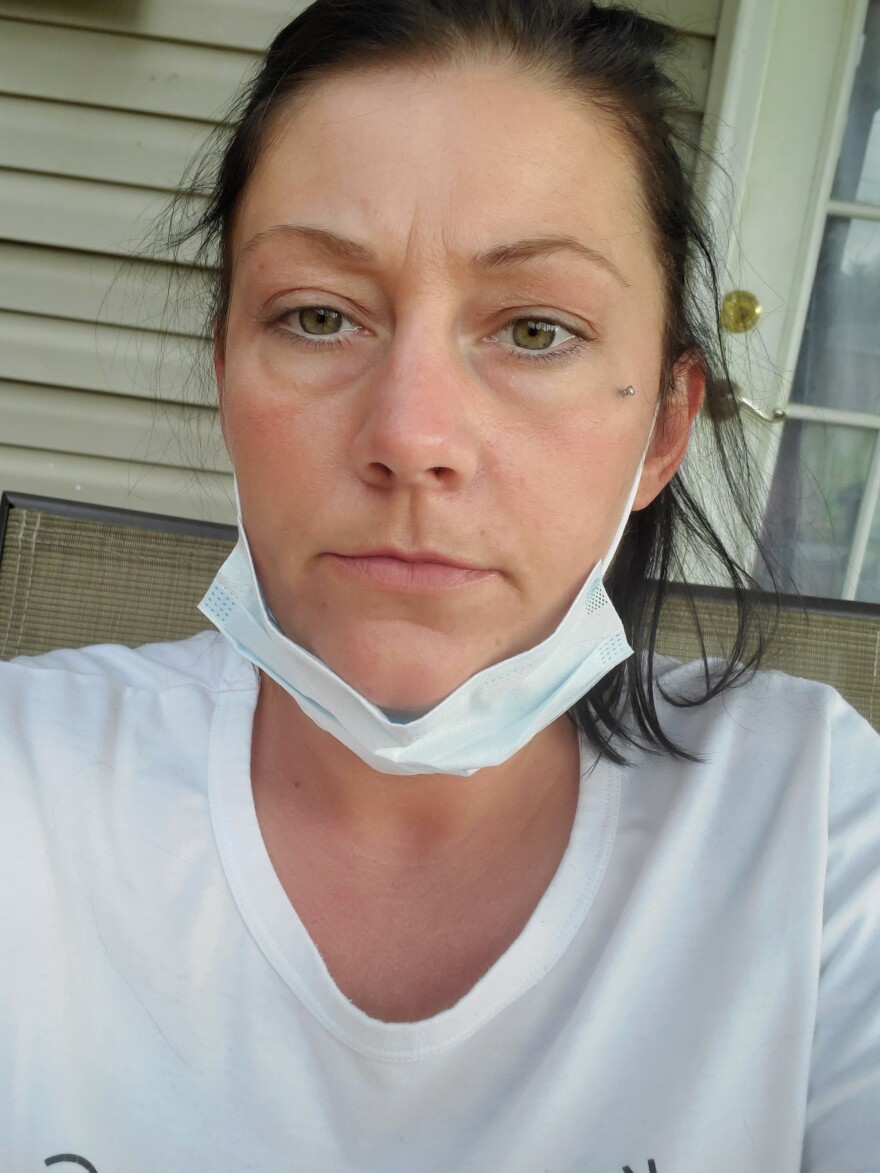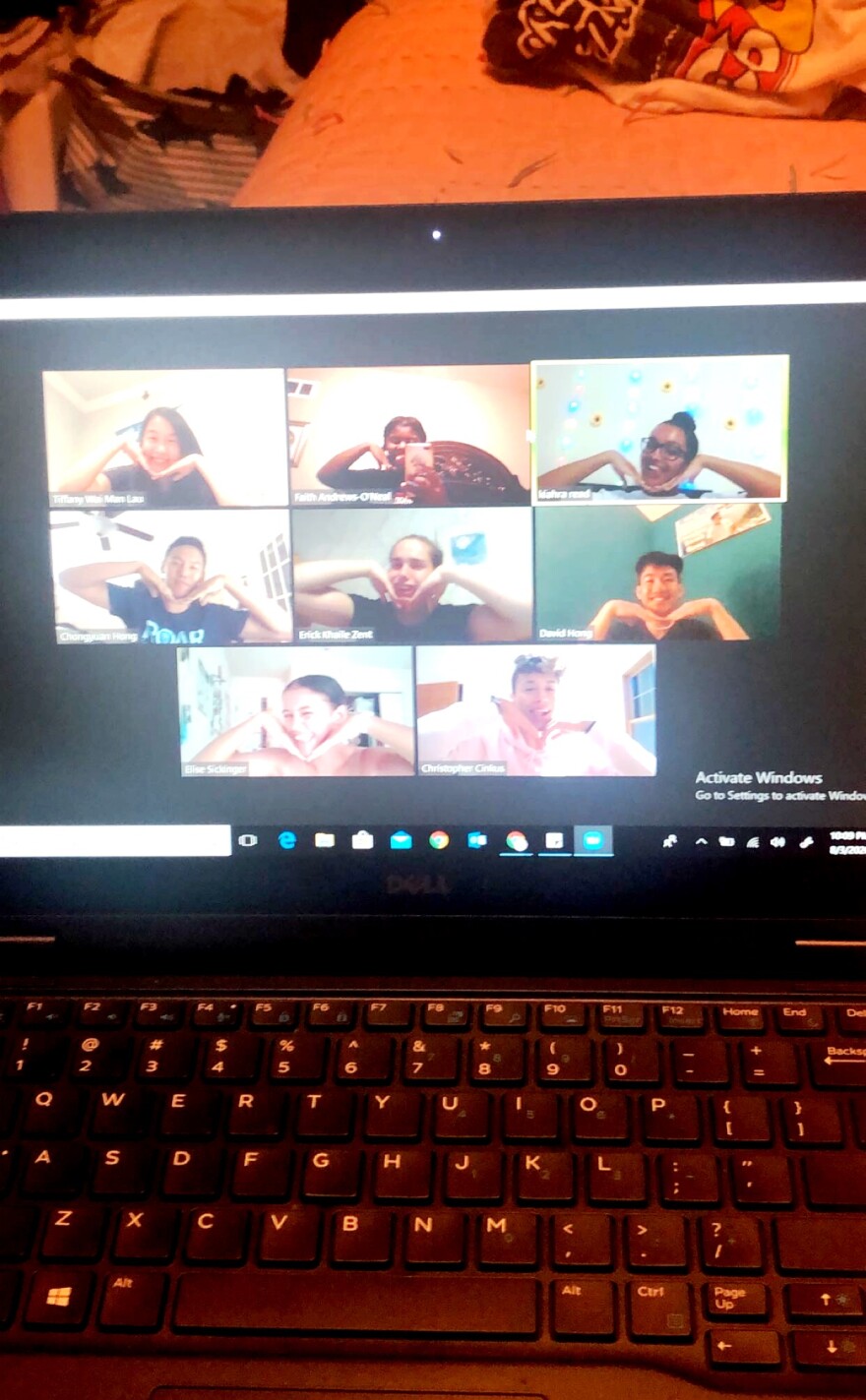Things have improved for Vanessa Radford, 34, since she was hit by COVID-19 three months ago. She feels better, at least physically.
"Mentally, I have PTSD," she said. "I’m scared to go back to work. (I wonder if) they are they taking precautions. Are they going to be taking tempareatures? Is the person next to me going to be sick. It’s caused me trauma."
When I first talked to Radford in July, she was worried about finances. She had left her job because someone tested positive for the virus. Then she got it herself.
"I was really sick for the better part of a week," she said. "I thought I was going to die."
As we enter the second half of a pandemic year in the United States, thousands, if not millions of lives in Kansas and Missouri are forever changed.
Both Missouri and Kansas are states where cases have been rising and have remained high per capita, according to the New York Times. As of Friday, 1,770 have died of the virus in Missouri and almost 500 in Kansas.
For the handful Kansas Citians we are checking in on this week, death has not rocked their lives. But the economic, educational and emotional ripple effect of the pandemic will have an impact on them and their families for years to come.
Radford and her three kids, 15, 12, and eight live with her mother, who had to leave her job as a restaurant server when Radford contracted Covid-19.
She read a devotional as she sat on the back porch of the house, quarantining from her family , praying she had not exposed any of them, including her grandmother who also lives with them.
"Let My brilliant Love-Light search out and destroy hidden fears," the Psalm reads.
"I had so many thoughts racing through my head as I read that,"Radford wrote in a text. "Would my grandma be able to fight (the virus) off if I exposed her? How am I going to take care of my kids, help my mom with bills, save up to get out and get my own place?"

As she was recovering, she collected $733 dollars in unemployment - $133 from the state and $600 from the federal CARES Act. The federal assistance ended in July and her state unemployment was caught up in red tape. There were some weeks where Radford had zero income. She relied on her church for food. Family and friends for financial support.
Her anxiety runs deep.
"I don’t think it will ever go away," she said. "Like, we had Covid. It’s different for us than it is for a household that did not have Covid. You're always worried you'll get it again."
Radford is still looking for a job. The only ones she's found are overnight, which makes it impossible for her to homeschool her kids.
She faces a daily challenge navigating their Zoom classes. But that's nothing compared to the virus.

When I first visited with Faith Andrews in mid-summer, she was waiting to hear what her freshman year at Columbia University would look like. She's dreamed of going to the New York City university since she was in middle school.
She had to cancel her campus visit because of the pandemic and was nervous about going to such a big city sight-unseen She didn't know if she'd be taking classes in person, online from a hotel room somewhere in the city, or from her home in Raymore, Missouri.
I asked Andrews to keep an audio diary of what the uncertainty was like.
"I’m in my bedroom right now at home, " she records herself saying into her phone not too long ago. "My WiFi keeps cutting out and I keep getting kicked off Zoom."
On August 7, she was ecstatic to get a dorm assignment from the university. A week later, the message came that all students would take classes remotely except those with extenuating circumstances.

"So today’s my first day of school," she says softly into her phone. "I just finished my first class. It was a general Chemistry lecture with, like, 200 people in a zoom class. It's definitely hard to get a feel for the class environment without sitting in the room full of other people. I get distracted by the noises of my house."
Andrews had become friends with her prospective roomate and some of the others in her class of 2024. They bonded. They made plans for exploring the city.
"So it’s 1:22 in the morning and I’m sitting in my room," she whispers. "I just finished zooming with my friends and two of them are on campus and they were zooming from their dorms and it made me a little upset."
Not in a jealous way, she says, just with longing that she wasn't able to live out her dream the way she had planned.
"I would love to be in New York right now," she said. "I just wish I would get to be a part of it."

When I last spoke with Reina Dudley she was terrified about how she'd make ends meet when the federal unemployment assistance ended. She had recently lost her job and had to put her husband into a memory care unit.
One of the most painful parts of the continuing pandemic is that she can only visit him for 15 minutes at a time, in a mask, from a six foot distance, outside.
"He doesn't know me, anyway," she says. "I go because I need to see him. But I can't even kiss him goodbye."
Dudley, 59, and her husband, 65, moved to Belton six years ago to be near his family. They didn't know anyone else in the area and now Dudley feels alone. She's part of several support groups for families of Alzheimer's patients but finds her husband's disease is significantly more advanced than that of the others so she doesn't offer much. She listens. She says she participates for the social interaction.
"I really don't see anyone," she says. "I'm diabetic, so I really don't even go out to the store."
She, too, has been scouring the job market , unable to find a job. She says there are weeks she's calculating how much will remain for food and utilities once she pays her rent.
"Here I am at my age, trying to figure this stuff out. It wasn't supposed to be like this," she says. "I don't know what to say, I'm in a pretty dark place."







